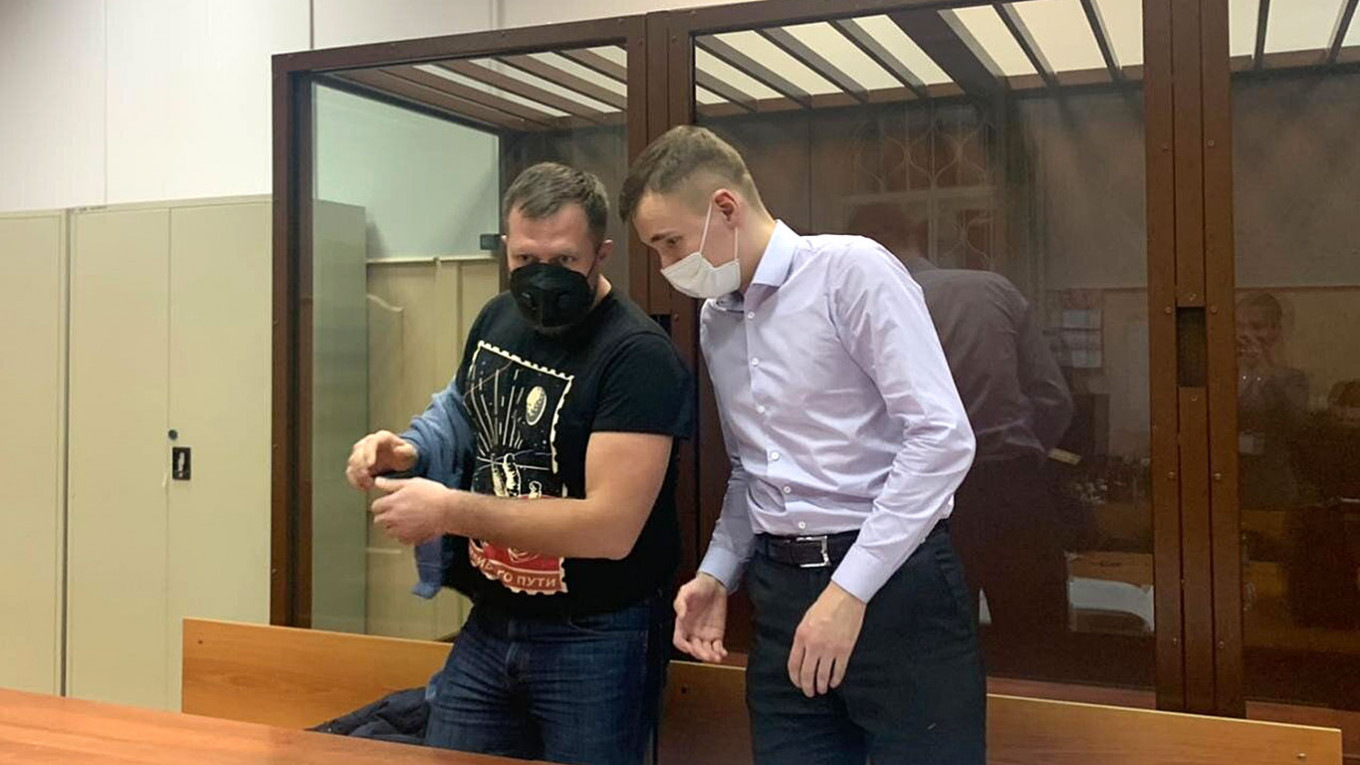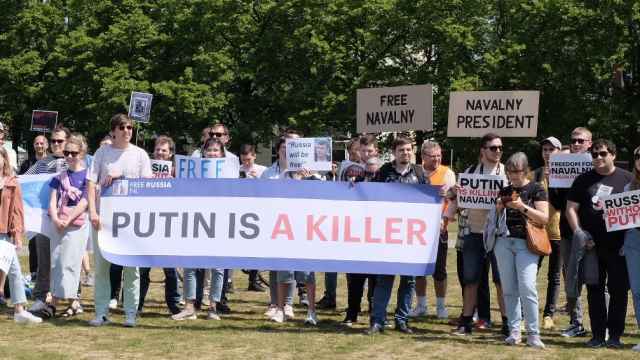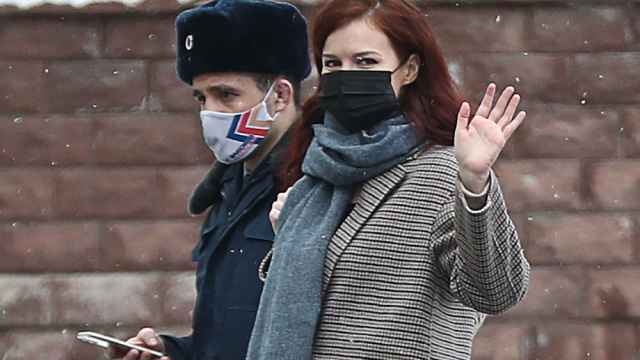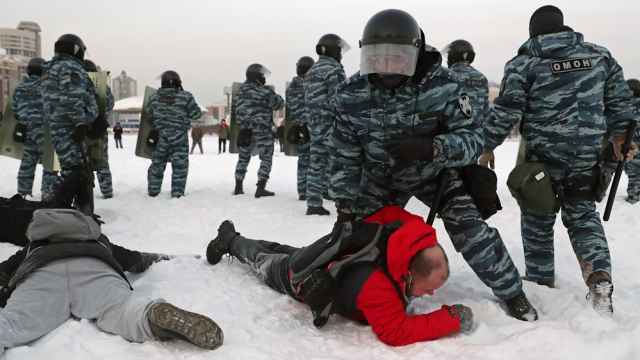Jailed Kremlin critic Alexei Navalny’s brother and close ally have been sentenced over their roles in this winter’s mass protests calling for his release, his ally said Friday.
Oleg Navalny and Nikolai Lyaskin were among several prominent opposition figures to be charged with violating coronavirus restrictions on mass events by calling on supporters to take to the streets in January.
Moscow’s Preobrazhensky district court found Lyaskin guilty of “inciting violations of sanitary restrictions” at the unauthorized rally on Jan. 23, he said on Twitter.
It sentenced him to so-called “restricted freedom,” imposing a nighttime curfew on leaving his home, attending mass events or leaving Moscow.
The court also found Oleg Navalny guilty of the same violations and handed him a one-year suspended sentence, a punishment that had been requested by prosecutors, his lawyer said.
Another close Navalny ally Lyubov Sobol was sentenced to 1.5 years of “restricted freedom” on Thursday.
Navalny himself is serving a 2.5-year prison sentence for breaking probation terms, a verdict that he says was politically motivated following his nerve-agent poisoning last August.
A Moscow court declared Navalny’s political and activist network “extremist” in June, outlawing Russia’s most vocal force opposing President Vladimir Putin ahead of high-stakes elections next month. Authorities last week blocked 49 websites belonging to or linked to Navalny and demanded Twitter and YouTube to block his allies’ accounts.
Several top Navalny associates are under house arrest awaiting trials on charges of violating coronavirus restrictions during this winter’s anti-Putin protests. A number of others have fled Russia.
A Message from The Moscow Times:
Dear readers,
We are facing unprecedented challenges. Russia's Prosecutor General's Office has designated The Moscow Times as an "undesirable" organization, criminalizing our work and putting our staff at risk of prosecution. This follows our earlier unjust labeling as a "foreign agent."
These actions are direct attempts to silence independent journalism in Russia. The authorities claim our work "discredits the decisions of the Russian leadership." We see things differently: we strive to provide accurate, unbiased reporting on Russia.
We, the journalists of The Moscow Times, refuse to be silenced. But to continue our work, we need your help.
Your support, no matter how small, makes a world of difference. If you can, please support us monthly starting from just $2. It's quick to set up, and every contribution makes a significant impact.
By supporting The Moscow Times, you're defending open, independent journalism in the face of repression. Thank you for standing with us.
Remind me later.






